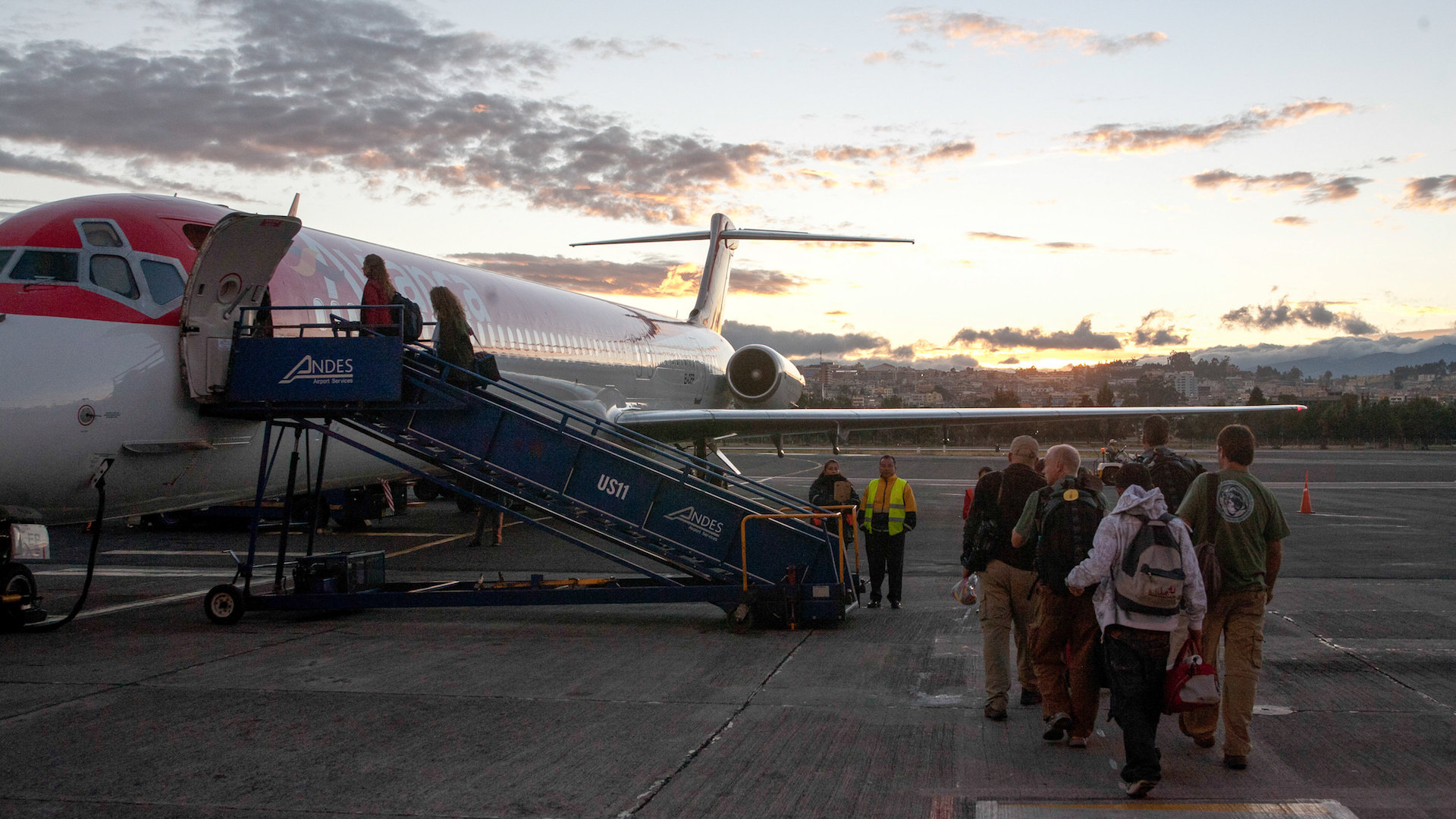
Mission trips can be exhilarating. If it weren’t the case, so many wouldn’t be signing up and going out. More Christians than ever seem to be serving abroad in some capacity, whether constructing buildings, or prayer walking, providing a VBS, or doing disaster relief.
While voices have begun to question the necessity, viability, and even benefit of embarking on these trips in the first place, I’d like to address the manner in which we return. We make mistakes not only in the way we go on mission trips, but also in the way we come back from them. Here are five such ways.
1. The Expert
We live in an information age. People love fast facts, even in missions. We parade our missionaries before us and ask them to boil down three years of foreign ministry into three minutes. But the inverse can also be true. Friends somehow expect those returning from a week overseas to wax eloquent on the people, language, culture, religion, politics, and geography of a place where in some cases they never emerged from the capital city, much less jet lag.
In such conversations—and perhaps due to our own pride—the temptation is to play the expert, to pontificate about a place we truly know little of, addressing topics beyond our expertise. We can speak in absolutes, defining an entire population as if they’re singular or flat, lacking nuance or understanding or appreciation. It would be as if someone from Nepal spent a few days in Los Angeles then returned to their mountain village to explain what America, and Americans, are like.
So then, we must come home with humility, recognizing that a brief foray into an isolated region often reveals only enough information to foster prejudice and generalization, but rarely enough for deep understanding.
2. The Called
Many of us have experienced a week of summer camp. The exciting experience, the overwhelming emotions, the comradery, the isolated location—all of these combine to create a memorable high point. Summer camps are great places to make significant life decisions. But those decisions are also notorious for generating little lasting change. A compelling moment under the stars by a campfire doesn’t guarantee long-term commitment and follow-through.
If that’s true for a week in the woods, it’s even more true for what has become the Western church’s latest version of Christian camp—oversees ministry trips. Globe-trekking teenagers and adults alike easily return with a sense of calling to missions. But that calling may simply be based on the fact that they had a memorable experience. After all, virtually every mission trip now blocks off significant time for sightseeing. Not to mention the reality that actual time spent in ministry is far from, well, reality. Rarely do volunteers experience the rigors of mission and the mundane of a foreign context. Which means a great experience on such a trip can’t be sufficient reason to pursue long-term missionary service.
3. The Critic
Those who come back can be so revved up that they want to return—and take everyone with them. But this isn’t necessarily the time to whip out “let the dead bury their dead” (Luke 9:60) quotes on all your friends. Yes, America is bloated and materialistic. Yes, there are starving children—and not just in Africa. Yes, we’re doing shamefully little in comparison to our abundant individual resources and massive church buildings. But don’t forget that the people you’re prone to chide are also likely the ones who paid, and prayed, your way. So come back with some saltiness, but don’t forget needed grace in those conversations.
Don’t forget that the people you’re prone to chide are also likely the ones who paid, and prayed, your way.
Similarly, it’s easy to come back to the States—particularly following a negative ministry experience—and be critical of the overseas workers. Yet just as you’re not the expert on language and culture and geopolitical issues, you’re probably not a guru on missiology. It’s usually best to give missionaries the benefit of the doubt since they actually live there and since they often have years of experience and training along with supervision and accountability in place. That’s not to say missionaries do no wrong, but coming back with only criticism of missionaries helps no one.
4. The Exaggerator
One of the greatest dangers upon returning from any mission, whether trips go well or not, is to inflate the numbers. To exaggerate the successes and overstate the struggles. To make the poor people poorer, the squalor dirtier, the bus ride longer, the church fuller, the darkness darker, the whole thing totally awesome.
We do this, again, because of our own pride. We have a desire to feel needed. Perhaps it’s as simple as wanting to justify the cost to our supporters. We may even have a sincere desire to encourage the church or to give praise to God for his work. But whenever we become the exaggerator, we reveal a deep insecurity in our identity with Christ. We show a lack of faith in him. And we reveal that we find our worth in what we have sacrificed and what we have accomplished for the Savior. Not the other way around.
5. The Enthusiastic
Which brings us to a related issue, and one that may surprise you. Everyone—at least everyone who manages to avoid stomach issues—is expected to return from a ministry trip with enthusiasm. Praising God for victories. Recounting stories of success. Exulting in all that was accomplished. In fact, this is the way the disciples returned to Jesus after their initial experience as short-term traveling witnesses. They returned with joy saying, “Lord, even the demons are subject to us in your name!” Jesus’ response is striking:
“Do not rejoice in this…but rejoice that your names are written in heaven” (Luke 10:20, ESV).
Of course, I’m not saying all short-term volunteers should return with dour faces and sober emotions. I’m also not suggesting—nor do I think Jesus was—that we not rejoice in victories, in deliverance from Satan’s power, in those who enter the kingdom. But there’s a subtle danger in exulting in what we accomplish for the kingdom more than joyfully resting in our place as children of the King. This, ultimately, is not simply a danger for short-termers, but for missionaries and churches alike. Counting numbers, watching budgets, tallying baptisms, and recording healings all in a way that glorifies results more than reconciliation with God—the danger is subtle. But that’s what makes it so dangerous.
Right Way?
So how does one come back from a short-term mission trip? For starters, with humility and gratitude for such a privileged opportunity. Speak of your experiences in a way that depicts God as the primary and ultimate actor (Acts 14:27), not in ways that draw attention to yourself. Also, find an opportunity to personally thank your supporters for their gifts and their prayers. You should definitely report on specific events and opportunities, focusing on stories of God’s grace, but also not avoiding realistic accounts of your struggles, weaknesses, or hardships.
You should return with a joyful awareness of God’s work in the world and a greater appreciation for our shared salvation.
You can also recount what you learned, doing so with necessary caveats and an awareness of your limited knowledge. In order to be better prepared for others’ questions, it’s not a bad idea to take notes or journal through your travels so that you’re prepared to provide specifics about your time. In particular, take down names of people for prayer. If possible, you should try to get to know local believers as well as missionaries, learning their struggles and needs, then passing them along so others can pray or respond appropriately. This way, the reporting of your trip is others-focused and glorifying to God.
Ultimately, you should return with a joyful awareness of God’s work in the world and a greater appreciation for our shared salvation.
Elliot Clark (MDiv, The Southern Baptist Theological Seminary) lived in Central Asia for six years where he served as a cross-cultural church planter along with his wife and three children. He is currently working to train local church leaders overseas.


